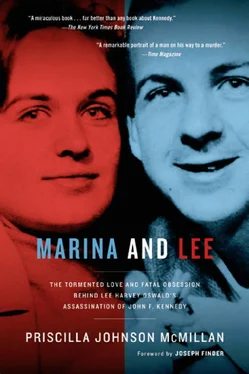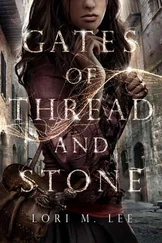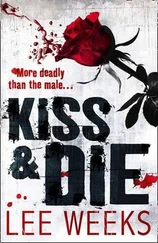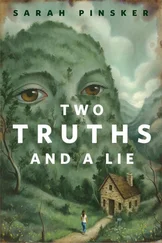Priscilla Johnson McMillan
MARINA AND LEE
The Tormented Love and Fatal Obsession Behind Lee Harvey Oswald’s Assassination of John F. Kennedy
“I want to give the people of the United States something to think about.”
LEE HARVEY OSWALD to the author, Moscow, November 16, 1959.
Shortly after President John F. Kennedy was assassinated, in November of 1963, a Gallup poll found that 52% of the American public believed that the assassin, Lee Harvey Oswald, was part of a conspiracy. In the fifty years since, that figure has climbed closer to 80%.
You can understand why. It’s painful to accept that an American president was cut down by one small, half-crazy guy with a mail-order rifle who could easily have been stopped in any of a dozen different small ways—but wasn’t. No wonder Norman Mailer called the assassination “the largest mountain of mystery in the twentieth century… a black hole in space absorbing great funds of energy and never providing a satisfactory answer.”
The key word here is “satisfactory.” The simple explanation—that Oswald acted alone—was unpalatable. The enormity of the crime didn’t fit the insignificance of the criminal. Far easier to imagine Oswald as a “cat’s paw” of a much larger scheme, engineered by invisible but all-powerful forces.
There’s something deeply consoling about conspiracy. As a writer of suspense fiction for whom conspiracy is a stock in trade, I know the gratifications of a world in which everything means something, everything adds up, everything is under the control of some grand human intention. We like to think that things happen for a reason, and that large things happen for large reasons.
The Warren Commission, established by President Lyndon Johnson a week after the assassination, was meant to set the record straight. Its task was to reassure a grieving nation that everything was under control, that there hadn’t been a coup d’état, that the US wasn’t, in Johnson’s phrase, a “banana republic.” Its published report gave us such turgid bureaucratese as “The Commission does not believe that the relations between Oswald and his wife caused him to assassinate the President” and “Many factors were undoubtedly involved in Oswald’s motivation for the assassination, and the Commission does not believe that it can ascribe to him any one motive or group of motives. It is apparent, however, that Oswald was moved by an overriding hostility to his environment.”
All this bureaucratic caution had a paradoxical effect, however. The Oswald who emerged from the Warren Commission report’s twenty-six volumes was a blank slate. No wonder it was so densely inscribed with our worst suspicions. It didn’t help that Oswald was himself shot dead two days after the assassination, by a nightclub operator named Jack Ruby in the basement of Dallas police headquarters. The shooting of the shooter made him loom all the larger in our imagination. As Thomas Powers pointed out, “Lee Harvey Oswald in prison for decade after decade—surfacing in the news whenever parole boards met, but otherwise forgotten, like Sirhan Sirhan, James Earl Ray, Arthur Bremer, John Hinckley—would have faded back down to size. It is Oswald dead and unexplained that excites suspicion. We needed a good long look in order to forget him.”
That good long look didn’t come until 1977, with the publication of Marina and Lee by Priscilla Johnson McMillan. The timing could not have been worse. It was two years after the ignominious end of the Vietnam War and three years after Watergate. The country had been through two more traumatic assassinations (Robert Kennedy and Martin Luther King). We were by then steeped in conspiracy thinking. Our distrust of politicians and government organizations was at fever pitch, shaped in part by the paranoid conspiracy thriller that had come into vogue in Hollywood: “The Parallax View” and “The Conversation” and “Chinatown” in 1974, “Three Days of the Condor” in 1975, “All the President’s Men” in 1976.
Marina and Lee offered a deep, nuanced, and spellbinding portrait of Oswald, as seen through the prism of the person who knew him best, his Russian wife, Marina. But it gave us no sensational revelations, no grassy-knoll conspiracy talk. What it offered instead was something far more unsettling: a portal to the life and times of a twisted, small man. The book was widely reviewed but its sales were modest. It wasn’t what the conspiracy-minded American public was in the mood to buy. McMillan’s book forces readers to confront something more vexing than a conspiracy: an absence of conspiracy.
It’s no less suspenseful for all that, in part because of the breathtaking intimacy of its character studies. The author’s gifts of observation are considerable. Yet she was also extraordinarily fortunate in the access that she enjoyed. A few months after the assassination, Oswald’s Russian widow, Marina Prusakova Oswald, was offered a choice of collaborators to write a book about her life with Lee. One was a Russian-born journalist named Isaac Don Levine, who’d written biographies of Lenin and Stalin. But he was mostly interested in talking about politics, and Marina had no patience for that. She wanted to talk about her tempestuous marriage.
The one writer Marina was drawn to was a thirty-six-year-old woman named Priscilla Johnson (later, Priscilla Johnson McMillan), who had a gentle, warm nature and an intriguing background. McMillan had been a friend of John F. Kennedy’s—she had been an aide to him when he was in the Senate, and, pretty and socially connected, was a target of his attentions, though it never led to an affair. She also spoke fluent Russian, which was crucial, since Marina’s facility with English was poor. She understood the idiosyncrasies of Soviet life, having spent several years in Russia as a young reporter.
By a startling coincidence, she had also known Marina’s husband. In November, 1959, as a reporter in Moscow, she had interviewed a twenty-year-old ex-Marine at the Metropole Hotel in Moscow named Lee Harvey Oswald, who’d announced he wanted to defect to the Soviet Union.
Marina Oswald and Priscilla Johnson McMillan hit it off immediately. McMillan then signed a contract with Harper & Row for a book about Lee Oswald for which she received an advance of $60,000. Two-thirds of that went to Marina. Marina signed a release giving McMillan a free hand to write whatever she wanted.
From July 1964 until the end of the year, McMillan all but moved in with Oswald’s young widow and her two small children in her ranch house outside Dallas. They cooked meals and traveled together. McMillan babysat Marina and Lee’s kids. They traded confidences. The terrible event was less than a year old, and its details were still fresh. This was about as close as we could get to asking questions of Oswald himself.
McMillan had a difficult task. Marina had been overinterviewed. Fearing deportation to the Soviet Union, she had given different versions of her life to the FBI, the Secret Service, and the Warren Commission. She was also wary, ashamed, and overwhelmed with guilt. Was she in some way to blame for his actions? She vacillated between wanting to condemn her late husband and wanting to defend him.
The result of McMillan’s immersive reporting is a full, rounded sense of Oswald’s character. His sense of self swings wildly. At times he regards himself as a world-historical figure destined to change the course of human events; at other times, he’s a cruelly neglected victim. It was a highly volatile combination. He fancied himself a Marxist, lived in rooming houses under aliases and was a furtive, nasty man. He wrote in what he called his “Historic Diary” while singing the theme song to the Gary Cooper western High Noon (“Although you’re grievin’, I can’t be leavin’/Until I shoot Frank Miller dead”). He was far too angry, unbalanced and delusional to consent to be the cat’s paw of some gleaming cadre of conspirators. (Only if you haven’t read Marina and Lee can you take Oswald’s famous jailhouse remark—“I’m just a patsy!” —at face value.) He was a liar, a manipulator, a wife-beater, an odious human being, and finally a pathetic one. We like to think that great men make history. McMillan reminds us that small men do, too.
Читать дальше












